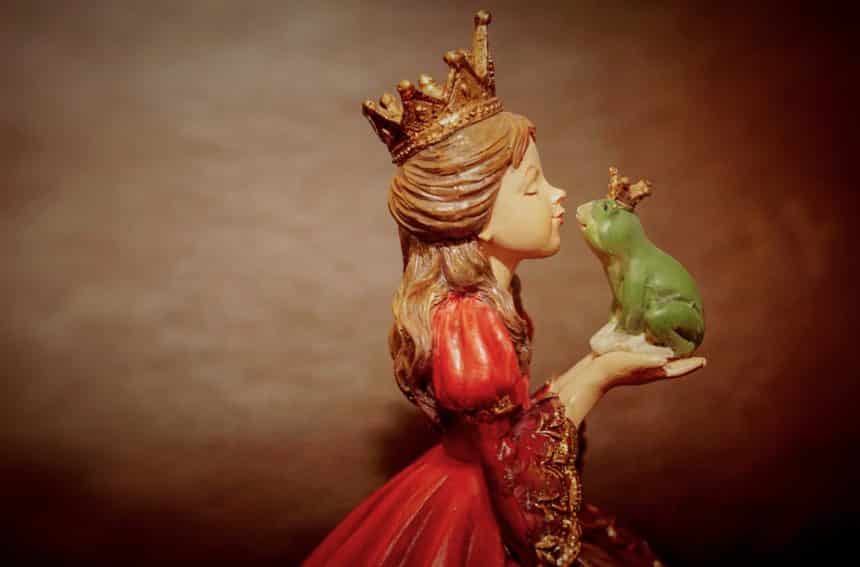We all know what the phrase “Beauty is in the eye of the beholder” means, that what I find beautiful, you may not: that our perception of beauty is subjective. But is it?
“What is the criterion of beauty? What scales do we employ to measure the beauty of the flower? It is a difficult question to answer. At the very depth of your statement lies the reason for calling the flower beautiful and that is – because you think so. But is your preference a rule of beauty? What is the basis behind calling a thing ugly? It is, that you think so. But is your dislike a rule set by nature, that a thing is ugly because you dislike it? What does your like and dislike show? It indicates all about you and nothing about the flower; for standing near the same flower, I can make my own likes and dislikes known. The flower remains the same, whether someone calls it beautiful or ugly; or whether no comment is made, the flower remains the flower. Let a thousand people make a thousand comments, the flower remains the same.
“Then what do these remarks tell us about – the flower or the one who makes these remarks?
“If we understand well, we shall know that all statements tell us about the speaker. Now take for instance this statement ‘This flower is beautiful.’ What I really mean to convey is that I am such a person who finds this flower beautiful. Now it is not imperative that this flower will still look beautiful to me in the evening. It may seem ugly to me by evening. Then I will have to say, ‘Now I have become such a person who finds this flower ugly.’ Are these feeling of beauty or ugliness, objective or subjective? Are they our own intrinsic feelings or the actual form of the objects? What are they? They are our mental feelings and reflections.
It is not fair to impose your mental images on the flower. Who are you to do so? What right have you? None whatsoever. But everyone of us, impose ourselves. Stand beside a flower one day. Stand still and quiet. Mind your old habit of qualifying things. Halt your judgment – the flower on one side, you on the other – let there be no judgment on the flower’s beauty or ugliness.
“In a few days you will find that the day when there is no conditioning, no judgment between you and the flower, you will experience an entirely new beauty of the flower, which is beyond beauty and ugliness. There will be a completely new unfoldment of the flower before you. That day there will be no mental imagery or likes and dislikes between you and the flower. Only the flower will be – blossomed in its perfection.
“And when a flower blossoms thus in its absolute perfection and without the interference of your mental images, then it has a beauty all its own, which transcends both beauty and ugliness. Remember, I say, it has a beauty all its own that is beyond our conception.
“Lao Tzu says: ‘That alone we call beauty where ugliness has no existence.’ But then there is no sign of the beauty we know of. You are going along a road and the branch of a tree falls on you. You do not say the tree has done wrong, that the tree is bad, it has committed violence; that it meant to harm you and you will pay it back! No, you say no such thing. In fact you make no decisions for or against the tree. You pass no judgment against it.
“And this incident does not disturb your sleep at night, nor do you pass days and months thinking of ways to take revenge. And all this because you have made no decisions whether the tree acted well or otherwise. Nay, you have not even thought that the tree has done anything to you. It was a matter of coincidence that the branch fell as you passed under the tree. You do not blame the tree.
But if a man hits you with a stick or – that is still excusable for the stick causes a hurt – if a man abuses you, the mind at once makes a decision for or against the person. How can mere words wound a person?
“But he at once resolves to take revenge and the thought catches hold of the mind. Now there will be images formed around the vituperations and this may go on for months and years, nay even for a life-time! But where did it all start? Did it start with the man’s abuse or did it start from your decisions – that is to be understood.
“If you had made no decision and said that it was a matter of coincidence that you were passing and the abuse happened to slip from the man’s lips, just as you happened to pass and the branch of the tree fell? If in truth we make no decisions and take it to be just a coincidence, would the anxiety have formed within us? Then could this abuse have become a wound within us?
“Then would we have to waste our precious time inventing fresh abuses for retaliation? No, this matter would have ended there and then. We made no decision of the right or wrong. It was a fact, we knew it as such and moved on! Lao Tzu says this is according to him – the good.”
To continue reading and see all available formats of this talk:
Osho, Tao: The Pathless Path Vol. 1, Talk #5 – There Can Be No Regret

